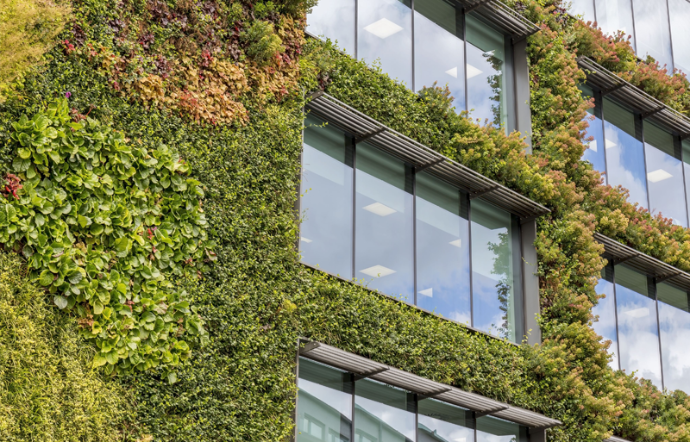Biodiversity & the Environment
Biodiversity refers to the variety of living species, including plants, animals, and microorganisms, that form ecosystems. It plays a crucial role in food production, climate regulation, and environmental stability. However, biodiversity in the UK is under severe threat due to habitat loss, pollution, and climate change. Parish and town councils can take practical steps to restore nature, protect green spaces, and support sustainable food systems in their communities.
Understanding Biodiversity Loss & Nature Recovery
The UK has seen a 56% decline in species since 1970, with 15% at risk of extinction. Councils can help reverse this trend by:
-
Protecting Ancient Woodland – Implementing policies to preserve existing woodlands. Learn more from The Woodland Trust
-
Increasing Tree Cover – Organising tree-planting events and encouraging community participation. Free tree packs available at The Woodland Trust
-
Planting Native Shrubs and Wildflowers – Supporting pollinators with native plants. See Plantlife's Road Verge Campaign
-
Managing Road Verges for Wildlife – Transforming roadside areas into wildflower habitats. More details at Plantlife
-
Developing Green Jobs and Skills – Creating environmental training and employment opportunities. Funding information: National Lottery Climate Action Fund
-
Leading Community Green Initiatives – Supporting grassroots biodiversity projects. Join Friends of the Earth Community Projects
Useful links
-
The Wildlife Trust – Biodiversity Net Gain Briefing


Tree Planting & Tree Management
Trees absorb carbon, improve air quality, and provide habitats for wildlife. Councils can enhance tree cover through community planting schemes and responsible tree management.
The Tree Charter
The Charter for Trees, Woods, and People was launched in 2017 to promote tree conservation and sustainable management. Parish and town councils can adopt these principles to protect and increase tree cover. The ten principles are:
Sustain landscapes rich in wildlife Plant for the future Celebrate the power of trees to inspire Grow forests of opportunity and innovation Protect irreplaceable trees and woods Plan greener local landscapes Recover health, hope, and wellbeing with the help of trees Make trees accessible to all Combat the threats to our habitats Strengthen our landscapes with trees
Learn more at The Woodland Trust Tree Charter
Free Tree Schemes
Trees for Glos: keeps up to date with the latest available tree funding, and will in some cases also fund maintenence.

Green Infrastructure & Urban Greening
Green infrastructure includes parks, green roofs, and urban woodlands, which help manage rainwater, improve air quality, and cool urban areas. Councils can encourage urban greening by:
-
Developing Parks and Community Gardens – Enhancing access to nature and improving biodiversity. Local Nature Action Plans
-
Installing Green Roofs and Walls – Using plants to insulate buildings and absorb rainwater. Green Roof Guide
-
Sustainable Drainage Systems (SuDS) – Managing rainwater naturally to prevent flooding. SuDS Guidance
-
Creating Wildlife Corridors – Connecting green spaces to allow wildlife movement. See The Wildlife Trust

Pollinator-Friendly Initiatives & Wildflower Planting
Bees and other pollinators are vital for food production but face severe population decline. Councils can help by:
-
Leaving Road Verges Unmowed – Allowing wildflowers to bloom naturally. Plantlife’s No Mow May
-
Creating Pollinator Gardens – Using native plants that provide nectar throughout the year. Bumblebee Conservation Trust
-
Avoiding Pesticides – Reducing harm to bees and other beneficial insects. RHS Pollinator Advice

Sustainable Food Systems & Community Food Growing
Locally grown food reduces carbon emissions, enhances food security, and builds community resilience. Councils can support:
-
Community Allotments and Orchards – Encouraging residents to grow their own food. The Orchard Project
-
Community Fridges and Food Pantries – Reducing food waste and supporting low-income residents. Hubbub Community Fridge Network
-
Sustainable Farming Initiatives – Working with local farmers to promote low-carbon food production. NFU Net Zero Farming Plan

Hazelmere Parish Council
The Bee Squared project encourages communities to plant wildflower seeds in small squares around their homes and public spaces to support bee populations and enhance biodiversity. This grassroots initiative provides free wildflower seeds and educational resources to help residents create “bee squares” in their gardens, parks, and communal areas. Read more

Glastonbury Town Council
This council has implemented a pesticide-free approach by discontinuing the use of glyphosate weed killer and adopting a hot foam system instead. This initiative aims to reduce harmful activities that negatively impact wildlife and promote more sustainable land management practices. They have also introduced educational signage to inform residents about the benefits of using peat-free compost and other eco-friendly methods. Read more

Frome Town Council
Frome has been proactive in increasing its urban tree cover, aligning with national campaigns to double tree cover in urban areas. The council has engaged local schools and community groups in tree-planting activities, enhancing green spaces and promoting environmental awareness among residents. This initiative supports the goal of achieving at least 20% tree cover in urban areas, as recommended by various environmental bodies. Read more